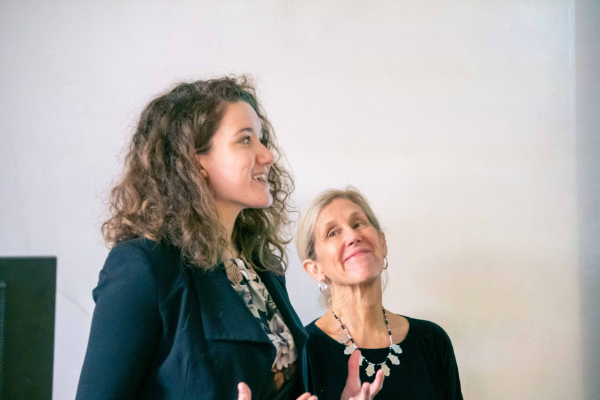The way questions are framed, the order in which they are delivered, and the tone of voice used to ask them are all part of the delicate art of asking questions. Good questions inspire change, challenge mindsets, and create bridges.
As part of the PGS Consults team, my colleagues and I are tasked with understanding the inner workings of a client’s organization. We must listen deeply, get to know people and processes, and grasp the organization’s ecosystem to craft meaningful sustainable solutions. We adapt to organizational language, use our intuition to pick up on subtext, and use discernment to carefully examine the critical parts: team communication, processes, and the goals of the organization.
Strive to ask questions that connect
The most fruitful questions are not those yielding yes or no answers. Using open-ended questions as a guide acts as an invitation for stakeholders to breathe life into the organization’s bigger picture. The more clarity consultants get on how things are connected, the better recommendations they can offer.
Connecting to stakeholders by listening to them is essential. Listening is a profound way to gain trust and credibility with stakeholders and allows consultants the ability to dig deeper. Developing a list of questions ahead of time is a great practice, but being able to facilitate a conversation is where information flows. Listening and asking questions that dig deeper into the subtext allows for a more complex view of a situation.
Sustainability consultants, in particular, can use open-ended questions to get an eagle-eye view of all of the ways in which an organization is influenced. They do this assessment with the intention of finding the areas with the biggest potential for environmental and social-justice impacts. We also seek lasting solutions that are good not only for the client, but also for all the people directly and indirectly connected to the client. Sometimes this process can meander off course; consultants must navigate situations to hold space for open-ended questions and ideas that might arise while also getting everyone back on track to achieve the bigger picture goals.
 Case Study: Achieving better alignment between our client’s employees and management
Case Study: Achieving better alignment between our client’s employees and management
Here’s a look at how these concepts play out in practice. A large organization chose PGS Consults to develop sustainability-related tools for frontline employees during a time of societal and organizational changes. After interviewing numerous internal stakeholders, we found a gap between issues identified by leadership and those actually faced by employees.
During the interview process, we worked to establish trust with employees by deeply listening to their challenges and by allowing them space to talk. Our open-ended questions and attentive listening led to the root of the problem. Using human-centered design principles, we created a tool for employees that was designed for their needs to address problems identified by both employees and leadership. We also were able to bridge the gap between leadership and employees by offering them insights from the employees and highlight areas with important insight that employees might not share directly with managers.
As management consultants, we can frame our questions to inspire creative thinking on the part of the consultant and the stakeholder. Questions like, “Where do you see this fitting into your organizational mission?” illuminate new pathways for all parties.
Every system is designed to get the results it gets
Open-ended questions are essential for tackling systemic problems. There is a well-known saying from Dr. Paul Batalden that we often repeat at Presidio Graduate School in reference to systems-thinking strategy: “Every system is perfectly designed to get the results it gets.” A consultant who asks only simple yes or no questions and doesn’t dig deeper into the subtext would miss the opportunity to elicit the complex and meaningful responses that lead to the root of a problem. Instead, we recommend you ask meaningful questions to examine the system from different perspectives than those that created the problems that originally plagued the system.
PGS Consults is the management consultancy at Presidio Graduate School, helping organizations of all sizes and regions to excel on the triple bottom line: Profit, People, Planet. To learn about PGS Consults, follow our LinkedIn page and/or request a consulting project by our talented faculty and alumni.

